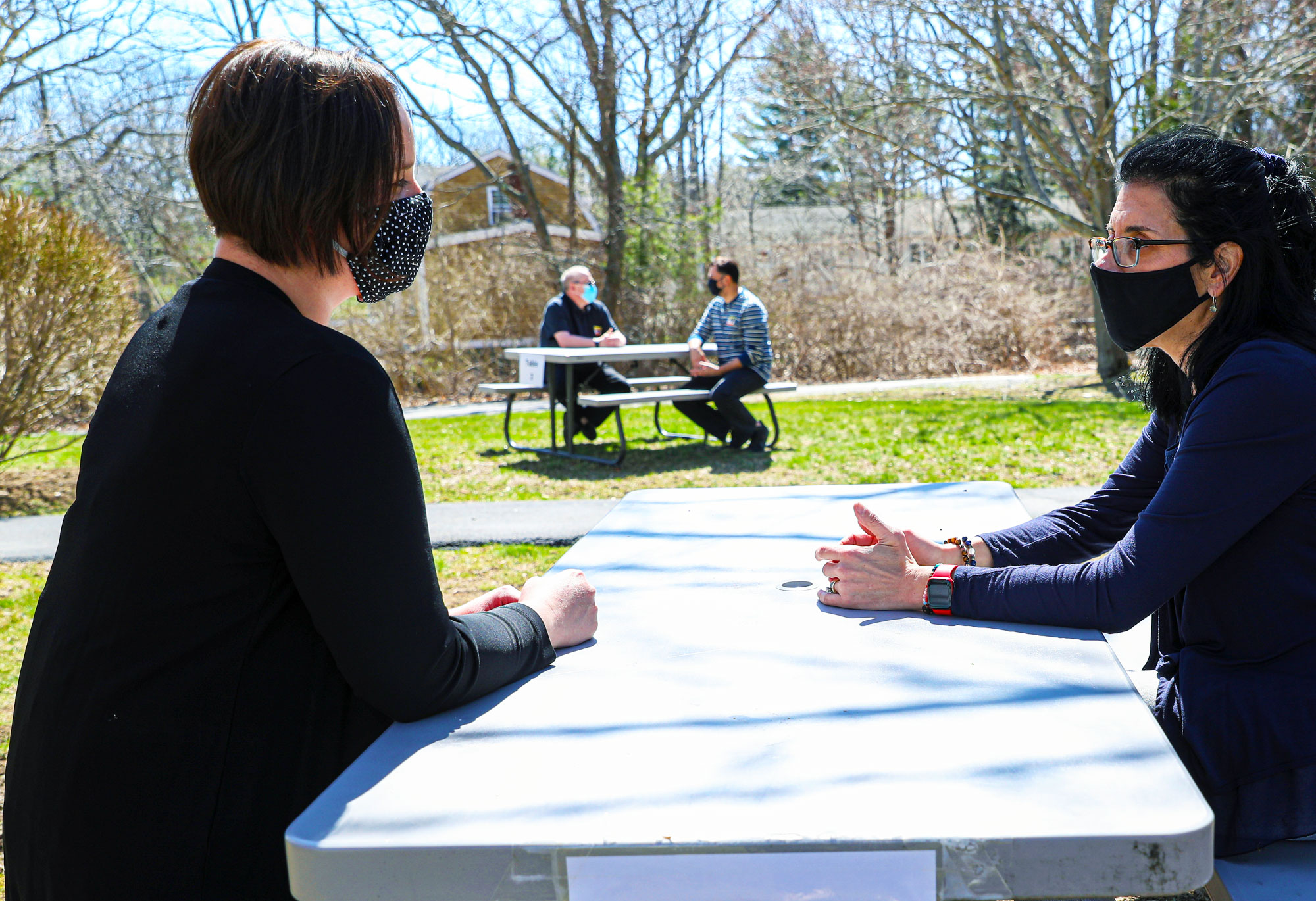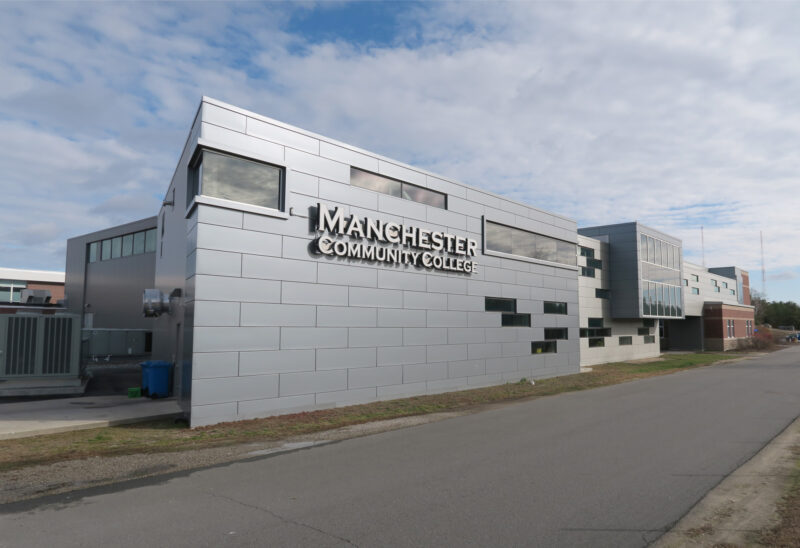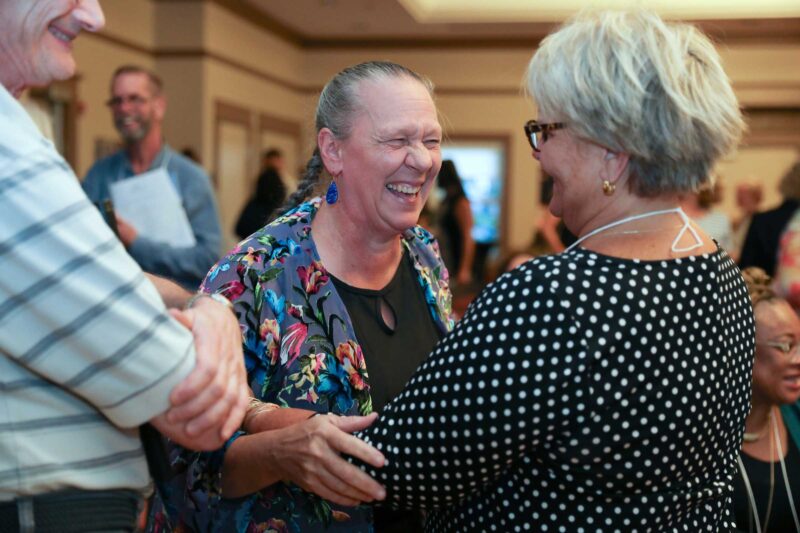When COVID turned her business and her life upsidedown, a New Hampshire small-business owner reached out to Seacoast Mental Health Center for help. The nonprofit provided emergency therapy via telehealth that helped her cope with stress, feel better overall with her life direction and put her business back together. She transitioned to non-emergency therapy, also through telehealth, scheduled around her demanding business commitment. Now, she is back to managing her life and her business in good health — one of thousands of people who continue to be helped by New Hampshire nonprofits during this extremely challenging time.
COVID has affected the mental health of people of all ages, from all walks of life. New Hampshire nonprofits have adapted while facing a surge in need, and are looking ahead at needs still to emerge as the full effects of a year of social isolation, loss of loved ones and the stress of living through a global pandemic continue to unfold.
Nonprofits turned to high-tech telehealth and low-tech camp chairs to face a mental health crisis that existed before the virus, then grew like “mushrooms after a rain.”
“All of the issues and diagnoses that we were treating before are still there,” said Jay Couture, president and CEO of Seacoast Mental Health. “Then, we began seeing an increase in anxiety, depression, risk of suicide and isolation.”
The surge taxed an understaffed system. Community mental health agencies hired staff and offered more group sessions to address the larger caseload. Mental health advocates worked with policy makers and providers to build collaborations that expanded mental health support and paved the way for future improvement. “The biggest struggle is the demand for care,” Couture said. “Seacoast Mental Health’s emergency services clinicians at Exeter Hospital are so incredibly busy — busier than I think we’ve ever seen. Our treatment teams are seeing the same thing.”
Foundation grants have supported nonprofits that are addressing this crisis — from early-COVID response grants toestablish telehealth practices to ongoing operating support, support for advocacy and for change in systems to better address behavioral health statewide.
Community mental health providers turned quickly to telehealth, connecting with patients by phone or video. In residential group homes, providers and patients donned PPE to meet in person.
Seacoast Mental Health’s outreach staff brought folding camp chairs to meet in clients’ yards. Providers scheduled sessions at picnic tables instead of conference rooms.
The pandemic’s effect on children has been alarming, as their normal coping mechanisms — seeing friends, playing sports and other school activities — were curtailed overnight.
“All of the issues and diagnoses that we were treating before are still there. Then, we began seeing an increase in anxiety, depression, risk of suicide and isolation.”
–Jay Couture, president and CEO of Seacoast Mental HealthTweet This
A new study from researchers at the University of New Hampshire showed that before the pandemic, more than half of children in mental health distress (and nearly two-thirds of 10- to 17-year olds) were not receiving appropriate care. There are no concrete figures for how COVID has affected that shortfall, but providers say the number of children facing anxiety and stress has only increased.
Mental health centers, schools and the state are working to find ways to address student needs.
JoAnne Malloy, director of UNH’s Institute on Disability, offers mental health training to schools and mental health centers.
“One of the things I’ve said to a couple of counselors and teachers is ‘It would be helpful to ease up on the academics a little bit,’” Malloy said, “allowing students a chance to process (their experiences). And schools need tools to identify kids who are really struggling and respond to that.”
Some school districts are working with nonprofit community providers to help children stay healthy.
Concord school counselors meet regularly with providers from Riverbend Community Mental Health to review how to support students who are Riverbend clients. Before COVID restrictions closed school buildings, Riverbend had an office at Rundlett Middle School. Come fall, plans are to resume that service and add an office at the high school.
Concord High started programs to help students re-establish school habits, reconnect and cope.
“Routines are hard to establish after you haven’t necessarily had a routine for some time,” said Concord High School psychologist Margie Borawska. “There was a new surge of students being stressed. It was like mushrooms after a rain.”
Around the state, some children and adults in crisis are taken to hospital emergency departments. Too many are “boarded” there, waiting for beds to become available in an appropriate mental health facility.
The state Supreme Court ruled in May that involuntary “boarding” in emergency departments without allowing patients court hearings violated patients’ rights.
At the Foundation for Healthy Communities, Nancy Fennell leads the Behavioral Health Clinical Learning Collaborative, which includes members from all of New Hampshire’s acute care hospitals, in-patient psychiatric hospitals, community mental health centers and other partners. The collaborative was formed a year before COVID-19 to help hospitals and mental health centers address the ED boarding crisis by partnering on clinical improvement initiatives that better support patients experiencing mental health crises in emergency departments. Then, COVID-19 deepened the crisis for patients of all ages.
Pre-COVID, the highest average number of children waiting in emergency departments over a three-month period was seven, in 2017. By the last three months of 2020, the average was 16. On one weekend in February, 51 children were waiting for a mental health bed.
Funded by the Charitable Foundation and the Endowment for Health, the Collaborative has helped develop a more coordinated approach to identify patients in need of mental health services and connect them with resources before they face issues serious enough to warrant an emergency department visit.
Through the Collaborative’s efforts, some New Hampshire hospitals and community mental health centers have begun implementing trauma-informed care practices and training to prevent mental trauma to staff and patients in emergency departments. A standardized suicide-risk screening with appropriate follow-up care protocol is now in widespread use.
As mental health providers and advocates look forward, they see obstacles — and cause for optimism. Fallout from COVID-19 continues to affect mental health care, they say, pointing out that first responders, healthcare workers, teachers, delivery people, grocery clerks and others deemed essential workers need attention.
“There are a lot of positive innovations and changes coming to the mental health service delivery system,” including the continuation of telehealth services which began during the early part of COVID.
–Ken Norton, executive director, NAMI NHTweet This
“Everyone knows someone, maybe not in a crisis, but who is dealing with a mental health challenge,” said Peter Ames, executive director of the Foundation for Healthy Communities. “We must encourage people to talk about mental health. The more people share their stories, the more it empowers others to do the same, which will help end the stigma around mental illness.”
Ken Norton, executive director of New Hampshire’s chapter of the National Alliance on Mental Illness, said despite the current and looming challenges, he is optimistic that changes championed by NAMI NH and others will improve care.
He expects a federal law creating a special three-digit 988 suicide prevention/mental health crisis line next year will revamp crisis care for mental health.
Also, Norton said, New Hampshire community mental health centers are establishing mobile mental health crisis response services, offering more care that integrates mental and physical health and a comprehensive system of care for children and support for families.
“There are a lot of positive innovations and changes coming to the mental health service delivery system,” he said, including the continuation of telehealth services which began during the early part of COVID. For patients with limited mobility, transportation or time, being able to access support online is critical.
Improving New Hampshire’s mental health system has long been debated among lawmakers. Michele Merritt, president and CEO of New Futures, a statewide health advocacy nonprofit, is encouraged that heightened awareness because of the boarding crisis, mental health staff shortages, access to care and other COVID-related issues have created new commitments from legislators and state leaders to re-envision how to better deliver mental health services — evidenced in the state’s latest 10-year Mental Health Plan, which includes children for the first time.
At Seacoast Mental Health, Couture sees hope in lessons from the past, specifically the 1918 influenza pandemic.
“The number one thing I try to remind people of is that pandemic ended and we moved forward,” she said. “We know we can recover, it’s just that while we are in it, you need a reminder that this, too, shall pass.”
If you or someone you know is struggling, help is available. Please reach out for support: Call the National Suicide Prevention Lifeline at 1-800-273-TALK (8255) or if you’re in New Hampshire, just dial 211 for referrals to services.










![Rev. Heidi Carrington Heath joined Seacoast Outright. [Photo by Cheryl Senter]](https://www.nhcf.org/wp-content/uploads/2024/05/Heidi-Carrington-Thumbnail-800x548.jpg)
![Dr. Jennie Hennigar treats a patient at the Tamworth Dental Center [Photo by Cheryl Senter]](https://www.nhcf.org/wp-content/uploads/2024/05/TCCAP-Hero-800x548.jpg)






